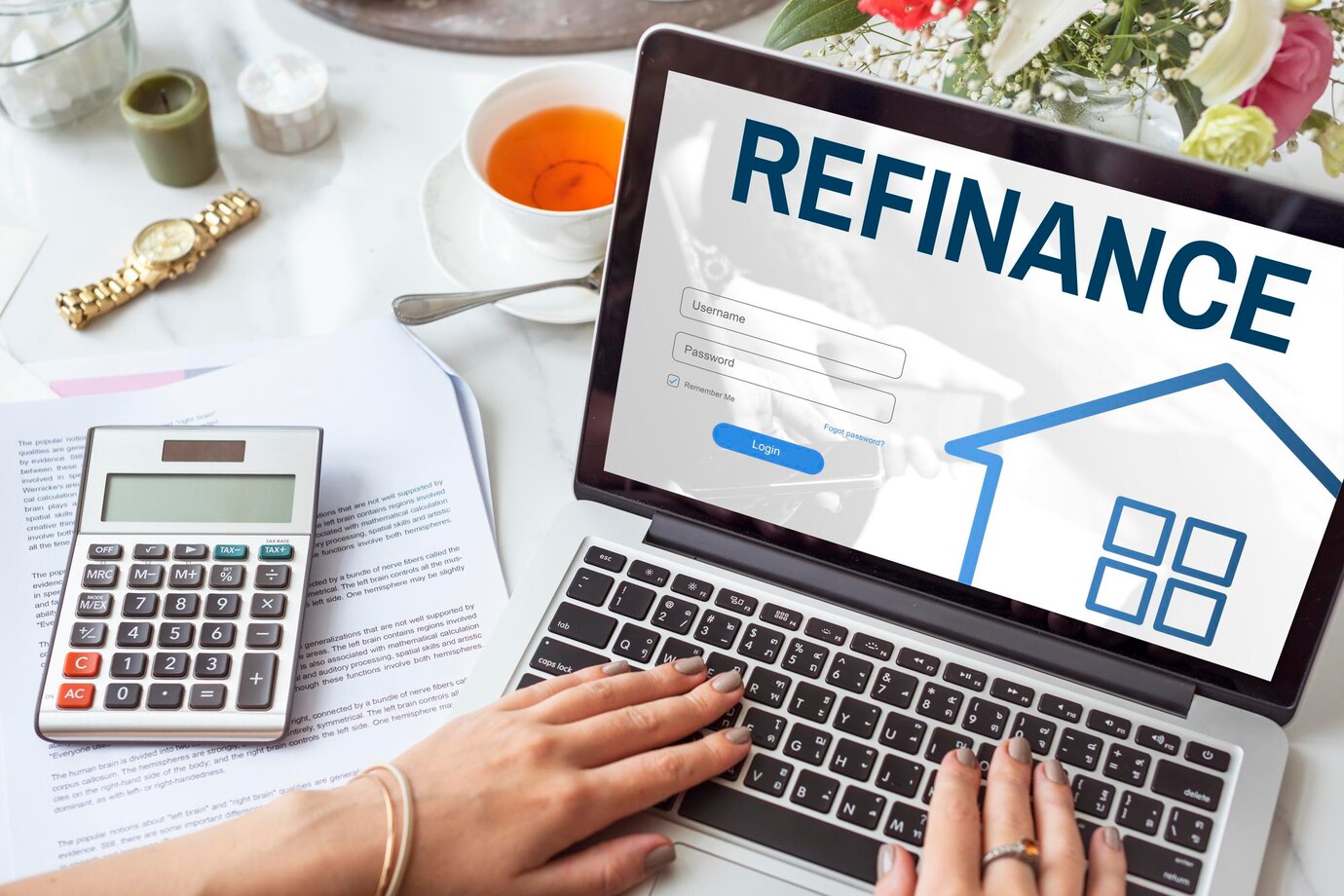
Key takeaways
- Refinancing can lower your monthly payments or help you access home equity
- Compare rates from multiple lenders to find the best deal
- Consider closing costs when deciding if refinancing makes sense
- Refinancing may extend your loan term, so weigh the pros and cons
- A good credit score can help you qualify for better refinance rates
- Local Winnipeg market conditions may impact refinance options
Refinancing your mortgage involves replacing your current home loan with a new one, often with better terms. For Winnipeg homeowners, refinancing can be a smart financial move in the right circumstances. Whether you’re looking to lower your monthly payments, tap into your home equity, or switch from a variable to a fixed rate, refinancing offers several potential benefits.
Understanding mortgage refinancing
Refinancing means taking out a new mortgage to pay off your existing one. The new loan typically has different terms than your original mortgage – this could mean a lower interest rate, a longer or shorter repayment period, or a switch between fixed and variable rates.
Many Winnipeg homeowners refinance to take advantage of lower interest rates. If rates have dropped since you first got your mortgage, refinancing could reduce your monthly payments significantly. For example, on a $300,000 mortgage, lowering your rate by just 1% could save you over $150 per month.
Another common reason to refinance is to access home equity. As you pay down your mortgage and as Winnipeg property values increase, you build equity in your home. A cash-out refinance lets you borrow against that equity, giving you funds for home renovations, debt consolidation, or other financial goals.
Is refinancing right for you?
Before jumping into a refinance, it’s important to carefully consider if it makes financial sense for your situation. Here are some key factors to weigh:
Your current interest rate
Compare your existing mortgage rate to current refinance rates. If you can lower your rate by at least 0.5-0.75%, refinancing may be worthwhile. Keep in mind that Winnipeg mortgage rates can differ from national averages.
Closing costs
Refinancing isn’t free – you’ll need to pay closing costs similar to when you first bought your home. These typically run 2-5% of the loan amount. Calculate how long it will take for your monthly savings to offset these upfront costs.
How long you plan to stay in your home
If you’re thinking of moving in the next few years, the savings from refinancing may not have time to outweigh the closing costs. Refinancing usually makes more sense if you plan to stay put for a while.
Your credit score
Your credit score plays a big role in the refinance rates you’ll qualify for. If your score has improved since you got your original mortgage, you may be eligible for better terms now.
Your income and debt levels
Lenders will look at your debt-to-income ratio when you apply to refinance. Make sure your current income can support the new loan payments.
Types of mortgage refinancing

There are several different refinancing options available to Winnipeg homeowners:
Rate-and-term refinance
This is the most common type of refinance. You replace your existing mortgage with a new one that has a different interest rate, term length, or both. The goal is usually to lower your monthly payments or pay off your mortgage faster.
Cash-out refinance
With this option, you borrow more than you currently owe on your mortgage and receive the difference in cash. This can be a good way to tap into your home equity, but it will increase your loan balance.
Debt consolidation refinance
Similar to a cash-out refinance, but the extra funds are used specifically to pay off high-interest debts like credit cards. This can simplify your finances and potentially save you money on interest.
Government-backed refinance programs
Programs like the Home Affordable Refinance Program (HARP) are designed to help homeowners who owe more than their home is worth refinance into more affordable mortgages.
The refinancing process
If you decide refinancing is right for you, here’s what you can expect:
- Shop around for lenders
- Choose a lender and loan program
- Apply for the refinance
- Get your home appraised
- Undergo underwriting
- Close on your new loan
The process typically takes 30-45 days from application to closing. Be prepared to provide extensive documentation of your income, assets, and debts.
Refinancing costs to consider
While refinancing can save you money in the long run, there are upfront costs to factor in:
| Cost | Typical Range |
|---|---|
| Application fee | $75 – $300 |
| Appraisal fee | $300 – $700 |
| Origination fee | 0.5% – 1.5% of loan amount |
| Title search and insurance | $700 – $900 |
| Legal fees | $500 – $1,000 |
These costs can add up to several thousand dollars. Make sure the long-term savings outweigh these initial expenses.
Refinancing in Winnipeg’s real estate market
Winnipeg’s housing market has some unique characteristics that can impact refinancing:
- Relatively affordable home prices compared to other major Canadian cities
- Steady, moderate home value appreciation
- Strong rental market, making income properties attractive
These factors can affect your home’s appraised value and your refinancing options. For example, Winnipeg’s affordable prices mean you may have built up less equity than homeowners in pricier markets, potentially limiting cash-out refinance options.
When refinancing might not make sense
Refinancing isn’t always the best choice. Some situations where you might want to stick with your current mortgage:
- You’re close to paying off your mortgage
- You plan to move within the next few years
- Your credit score has dropped significantly
- Your income has decreased or become less stable
- Interest rates haven’t dropped much since you got your original mortgage
Alternatives to refinancing
If refinancing doesn’t seem like the right fit, consider these alternatives:
- Mortgage recasting: You make a large lump sum payment and your lender recalculates your monthly payments based on the new balance
- Home equity line of credit (HELOC): Borrow against your equity without refinancing your first mortgage
- Loan modification: Your current lender may be willing to adjust your loan terms if you’re having trouble making payments
Refinancing and your credit score

Refinancing can have both positive and negative impacts on your credit:
Potential negative effects:
- Hard credit inquiry when you apply
- Closing your old mortgage account, which can shorten your credit history
Potential positive effects:
- Lower monthly payments can make it easier to pay on time
- Paying off high-interest debt with a cash-out refinance can improve your credit utilization ratio
Overall, the impact on your credit score is usually minimal and temporary.
Preparing for a refinance
To improve your chances of a successful refinance:
- Check your credit report and correct any errors
- Pay down other debts to improve your debt-to-income ratio
- Gather necessary financial documents (pay stubs, tax returns, bank statements)
- Research current mortgage rates and refinancing options
- Get your home ready for the appraisal
Refinancing investment properties in Winnipeg
Refinancing an investment property can be more challenging than refinancing your primary residence. Lenders typically charge higher interest rates and require larger down payments for investment properties. However, Winnipeg’s strong rental market can work in your favor, as steady rental income can help you qualify.
The future of refinancing in Winnipeg
Several factors could impact refinancing trends in Winnipeg:
- Potential interest rate changes
- New government housing policies
- Shifts in the local real estate market
- Technological advancements in the mortgage industry
Stay informed about these trends to make the best decisions about refinancing your Winnipeg home.
Common refinancing mistakes to avoid
When refinancing, be careful to avoid these pitfalls:
- Focusing solely on the interest rate and ignoring fees
- Extending your loan term without considering the long-term costs
- Cashing out too much equity and overextending yourself
- Not shopping around for the best rates and terms
- Refinancing too frequently and paying excessive fees
How to choose a refinance lender
When selecting a lender for your refinance:
- Compare rates and fees from multiple lenders
- Read customer reviews and check lender ratings
- Consider both banks and mortgage brokers
- Look for lenders with experience in the Winnipeg market
- Ask about rate locks and how long they’re valid
| Factor to Consider | Why It’s Important |
|---|---|
| Interest rate | Determines your monthly payment |
| Fees | Can significantly impact the total cost of refinancing |
| Customer service | Ensures a smooth refinancing process |
| Loan programs offered | Provides options that fit your specific needs |
| Local market knowledge | Understanding of Winnipeg’s unique housing market |
Conclusion

Refinancing can be a powerful financial tool for Winnipeg homeowners, potentially lowering your monthly payments, helping you pay off your mortgage faster, or giving you access to your home equity. However, it’s not the right choice for everyone. Carefully consider your financial goals, the costs involved, and your long-term plans before deciding to refinance. By doing your research and working with a reputable lender, you can make an informed decision about whether refinancing is the right move for your Winnipeg home. For more information, visit our website or contact us!
- Tags:
- Refinance